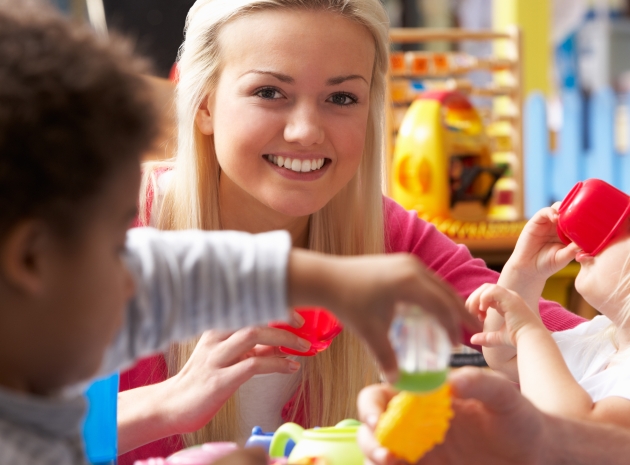In high-quality early years settings, teachers harness the power of play to help young children thrive, say the experts at The Mulberry House School…
Play is often described as a child’s “work,” and nowhere is this more evident than in a nursery school classroom. For children aged two to five, play is more than recreation. It’s the foundation of learning.
Through purposeful play, young children develop language, problem-solving skills, emotional intelligence, and physical coordination. Recognising its importance helps teachers and parents guarantee that children can thrive in their earliest years of education.
A room filled with building blocks, pretend kitchens, and art supplies may appear simply entertaining, yet each activity supports crucial areas of development.
● Cognitive growth: Sorting shapes or stacking towers introduces early concepts of maths and science. Children test cause and effect long before they encounter formal scientific language.
● Language development: Role-play games, singing, and storytelling expand vocabulary and communication.
● Social understanding: Cooperative play teaches turn-taking, empathy, and conflict resolution, skills that form the bedrock of successful group learning.
Not all play looks the same. Educators often highlight four main types:
1. Free play: Child-led exploration encourages independence and creativity. Whether arranging a pretend tea party or sketching colourful creatures, children follow their own curiosity.
2. Structured play: Guided activities such as group games or themed art projects introduce specific concepts while maintaining fun. Teachers might use counting songs or building challenges to reinforce early numeracy.
3. Physical play: Outdoor climbing, balancing, and ball games strengthen gross-motor skills and build confidence. Physical play also provides an outlet for energy, promoting better focus later in the day.
4. Imaginative play: Dressing up, role-playing family life, or inventing stories allows children to process experiences and experiment with different roles. This fosters creativity, empathy, and problem-solving.

Teachers in a nursery school are not passive observers. They carefully design environments and subtly guide play to expand learning. Adding measuring cups to a sand table introduces concepts of volume and measurement. Joining a pretend shop game provides opportunities to model polite conversation and basic counting.
Observation is central to this approach. By watching how children interact, teachers identify emerging strengths and areas needing support. A child who rarely speaks during circle time may reveal rich language skills when immersed in imaginative play.
Assessment in nursery schools often happens through these observations rather than formal tests. Teachers document learning with notes, photos, and examples of children’s work, building a holistic picture of development.
Play is also a tool for emotional wellbeing. Young children often use imaginative scenarios to explore feelings they cannot yet express verbally. A child with a new sibling might role-play being “the baby,” working through complex emotions in a safe context.
Collaborative play teaches resilience. Children learn to share, cope with setbacks, and celebrate group achievements. These experiences support confidence and self-regulation.
Parents sometimes wonder whether a play-rich day provides enough “real learning”. Educators often reassure families by explaining how literacy, numeracy, and problem-solving are embedded in playful experiences. A teacher might share, “Today Maya built a bridge that held five toy cars. She was testing balance and design without even realising it.”
Partnerships with parents allow play to extend beyond the classroom. A child fascinated by insects in the outdoor area may be encouraged to explore books on bugs at home, reinforcing the link between curiosity and knowledge.
The classroom environment plays a powerful role in encouraging exploration. A high-quality nursery school typically offers well-defined areas such as quiet corners for reading, spaces for art and construction, and outdoor gardens for movement and discovery. Materials are open-ended and accessible so that children can invent and adapt activities freely.
Predictability and safety also matter. Regular routines give children confidence, while fresh resources and rotating themes keep their curiosity alive.
The benefits of play extend far beyond the nursery years. Children who experience rich play-based learning often enter primary school with strong social skills, problem-solving ability, and a deep love of discovery. Studies consistently show that high-quality early play experiences are linked to improved outcomes in literacy, numeracy, and overall wellbeing.
Teachers who protect and nurture play are preparing children not just for academic success, but for a balanced, resilient approach to life itself.
When play is recognised as serious work, the value of a nursery school education becomes clear. Through imaginative games, constructive challenges, and joyful movement, young children develop the skills and confidence they will carry forward into primary school and beyond. By celebrating and protecting play, teachers and parents give children the strongest possible start on their lifelong journey of learning.

Impact in Schools
Ace-Practitioner
